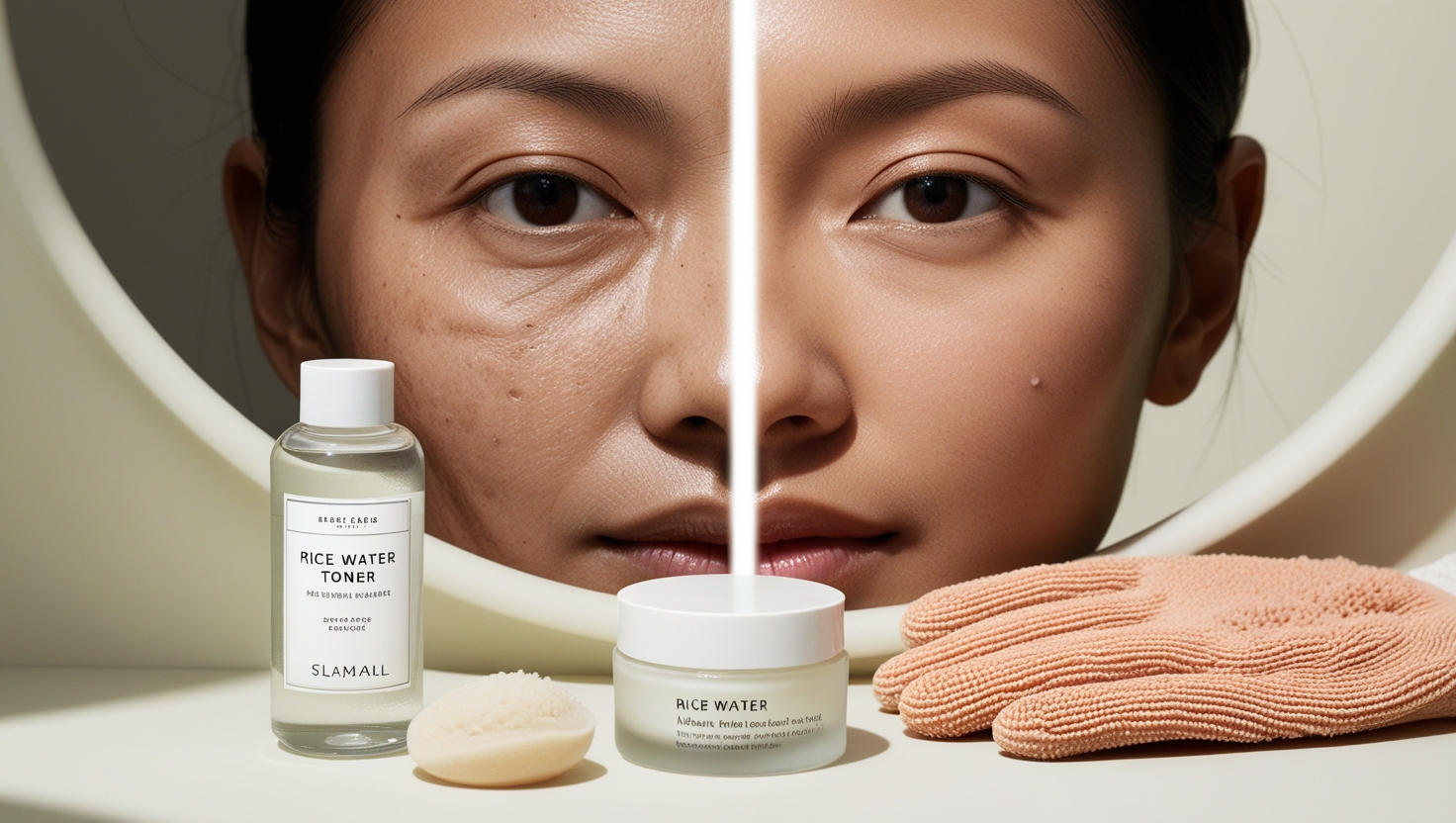Rice Water: All Benefits and Disadvantages
Imagine a simple kitchen ingredient that could transform your hair and skin. Rice water, a centuries-old beauty secret, has gained popularity for its numerous benefits. But is it all good? Let’s dive into the amazing world of rice water and uncover the pros and cons!
1. Will rice water grow your hair?
Rice water is rich in vitamins, minerals, and amino acids that can significantly promote hair growth. These nutrients nourish hair follicles, improving circulation and encouraging healthy growth. The amino acids in rice water strengthen hair strands, reducing breakage and allowing your hair to grow thicker over time. Many users have reported not only faster hair growth but also improved hair texture and reduced hair loss after regular application. This makes rice water a popular choice for those looking to enhance their hair care routine.
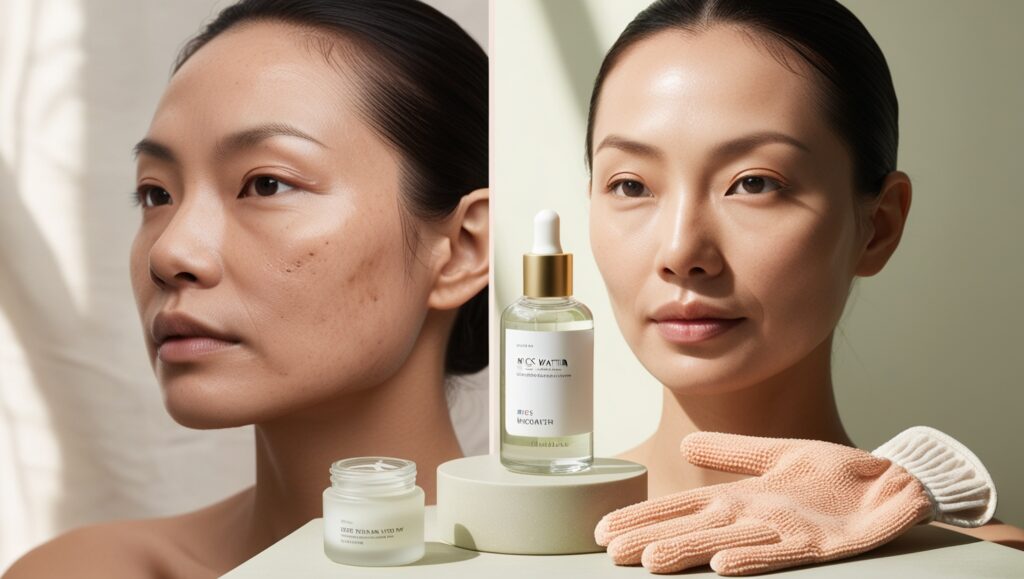
2. Why does rice water stool in cholera?
Rice water is often recommended as a rehydration solution for cholera patients. During cholera outbreaks, people can lose significant amounts of fluids and electrolytes due to severe diarrhea. Rice water contains essential electrolytes, such as sodium and potassium, as well as carbohydrates that help replenish lost fluids and nutrients. This simple remedy has been used for centuries in many cultures as a way to manage dehydration and restore health during gastrointestinal illnesses.
3. Why does rice water cause acne?
While rice water can offer many benefits, it may also cause acne in some individuals. If not rinsed properly or if it contains excess starch, it can clog pores and lead to breakouts. Some people with oily or sensitive skin may find that rice water exacerbates their acne. To minimize this risk, it’s essential to ensure that your skin is clean before applying rice water and to monitor how your skin reacts. Additionally, using rice water in moderation can help you avoid potential skin issues.
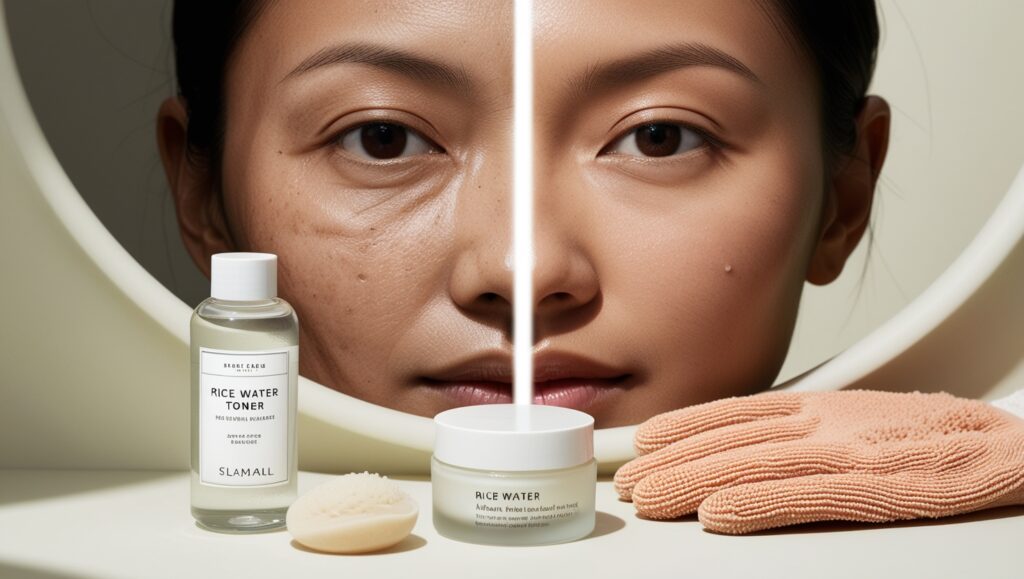
4. Why is rice water good for the face?
Rice water is packed with antioxidants, vitamins, and minerals, making it an excellent natural treatment for facial skin. It helps brighten the skin by reducing the appearance of dark spots and hyperpigmentation, leading to a more even skin tone. Additionally, its anti-inflammatory properties help reduce redness and irritation, making it ideal for sensitive skin. Regular use can also maintain moisture levels, soothe irritation, and even help with conditions like eczema or psoriasis.
5. Why is rice water good for hair?
Rice water is a powerhouse for hair health. It nourishes the scalp, strengthens hair follicles, and enhances overall hair texture. The high inositol content in rice water not only helps repair damaged hair but also provides a protective barrier against environmental stressors. This results in smoother, shinier hair that’s less prone to damage. Many users have noticed that their hair feels softer and looks healthier after consistent use of rice water, making it a staple in their hair care routines.
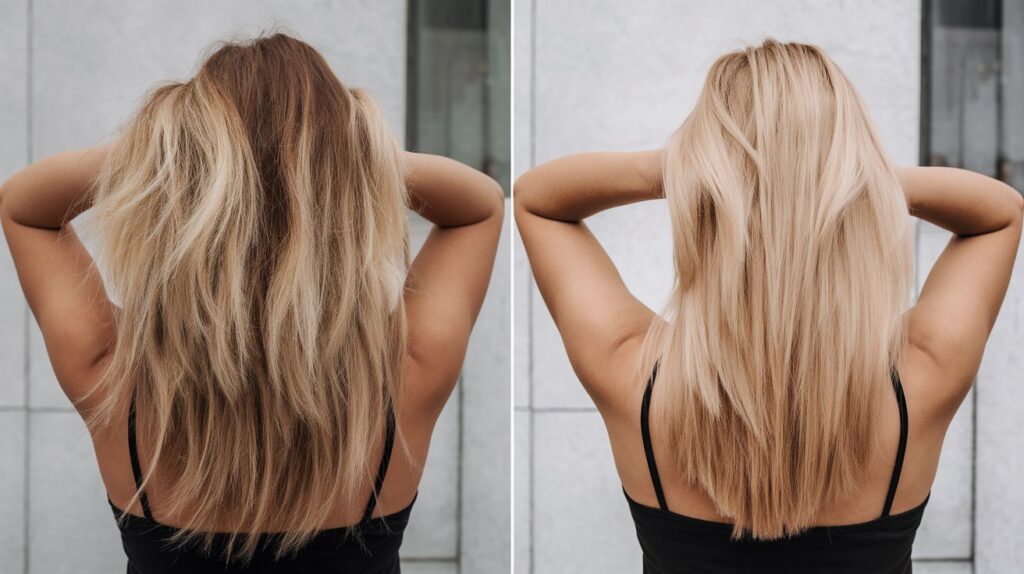
6. Why does rice water smell bad?
The unpleasant odor of rice water typically arises from fermentation or improper storage. Freshly made rice water should have a mild scent, but if it smells sour or rancid, it’s a sign that it has spoiled. This can happen if it’s left at room temperature for too long or if not stored in a clean, airtight container. To avoid this issue, always refrigerate your rice water and use it within a week. If you notice any changes in smell or appearance, it’s best to discard it.
7. Why is rice water good for skin?
Rice water hydrates and calms the skin, making it ideal for those with sensitive or irritated skin. Its anti-inflammatory properties can help reduce redness and improve overall skin tone. Additionally, rice water contains compounds that may help tighten pores and reduce the appearance of fine lines. It also acts as a natural exfoliant, promoting a brighter complexion. Regular application of rice water can lead to smoother, clearer skin, making it a popular choice in many skincare routines.
8. How to make rice water?
Making rice water is a simple process. Start by rinsing 1 cup of rice to remove dirt and impurities. Next, soak the rice in 2-3 cups of water for about 30 minutes, stirring occasionally to allow the nutrients to seep into the water. Afterward, strain the mixture to collect the liquid. You can use it immediately or store it in the refrigerator for later use. Some people also choose to ferment the rice water for added benefits; this involves letting it sit at room temperature for 24 hours before straining.
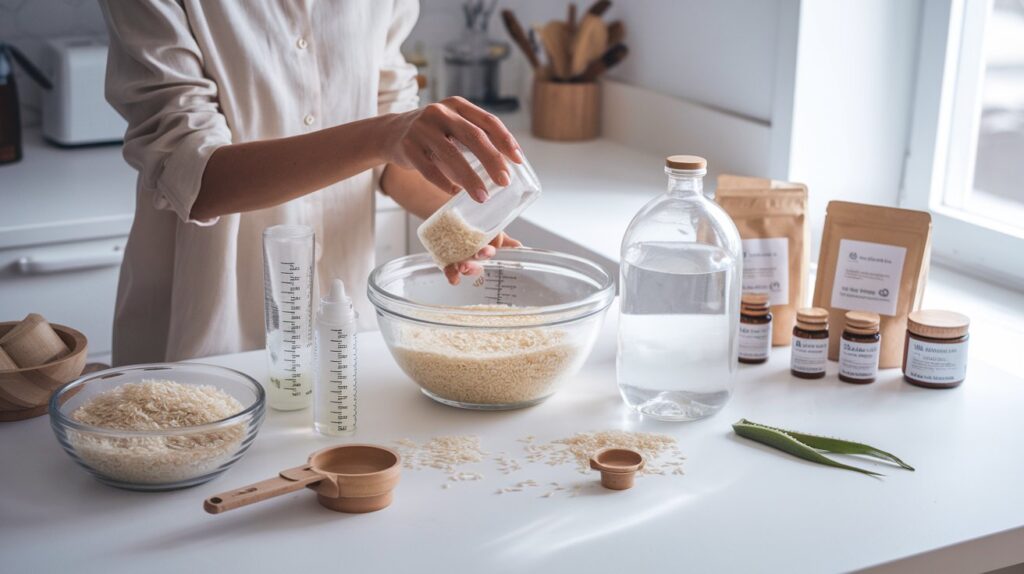
9. Who uses rice water?
Rice water is widely used in many cultures, especially in Asian countries like Japan, Korea, and China, where it has been part of beauty routines for generations. It’s favored by those seeking natural remedies for hair and skin care, including individuals looking for affordable and effective solutions. Additionally, beauty influencers and skincare enthusiasts around the world have embraced rice water, sharing tips and tutorials on how to incorporate it into daily routines.
10. Which rice water toner is best?
The best rice water toner is typically made from organic, non-GMO rice, ensuring purity and effectiveness. Look for toners that emphasize natural ingredients and avoid harsh chemicals, which can negate the benefits of rice water. Many brands now offer rice water toners that combine other beneficial ingredients, such as herbal extracts or essential oils, to enhance their effects on the skin.
11. Which rice water toner is best for skin?
Fermented rice water toners are often considered the best for skin due to the increased antioxidant content resulting from the fermentation process. These toners provide additional benefits, including improved hydration and nourishment. When selecting a rice water toner, consider your skin type and any specific concerns you may have, such as sensitivity or dryness, to find the best match for your needs.
12. Which rice water is good for hair?
Fermented rice water is particularly beneficial for hair. The fermentation process not only enhances its nutrient profile but also increases its protective qualities, making it an excellent choice for hair care. Users often find that fermented rice water improves hair elasticity, reduces frizz, and adds shine, making it a staple in many hair care regimens.
13. Which rice water is best for face: boiled or raw?
Raw rice water is generally preferred for facial use due to its higher vitamin content and nutrient availability. However, boiled rice water can also offer soothing benefits, especially for those with sensitive skin. The choice between boiled and raw rice water may depend on personal preference and how your skin reacts to each type.
14. Where to get rice water for hair?
You can easily make rice water at home using any type of rice, such as white, brown, or jasmine. Additionally, many beauty stores now offer pre-made rice water products that are ready to use. Look for options that emphasize natural ingredients to ensure you’re getting the best benefits for your hair.
15. Where to put rice water?
Rice water can be applied directly to the hair as a rinse or to the face as a toner. You can also use it in DIY masks or as a soak for tired feet. Its versatility makes it a valuable addition to various beauty and wellness routines.
16. Where to use rice water?
Primarily, rice water is used on hair and skin. It’s effective as a scalp treatment, hair rinse, and facial toner, helping to enhance beauty routines. Additionally, some people use rice water in baths or as part of homemade skincare products for added nourishment.
17. Where to store rice water for hair?
Store rice water in an airtight container in the refrigerator to prolong its shelf life. It’s best used within a week to ensure maximum benefits, as freshness ensures its effectiveness. If you notice any changes in smell or appearance, it’s a sign that it’s time to discard it.
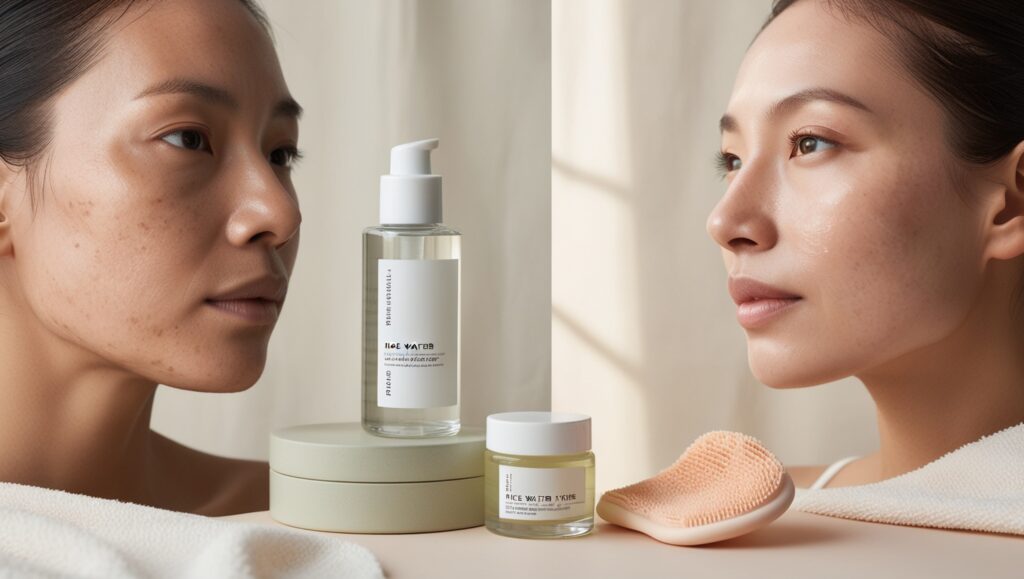
18. Where to store rice water for face?
Rice water can be kept in a cool, dark place or refrigerated. Always store it in a clean, airtight container to prevent contamination and spoilage. Keeping it chilled can also help enhance its refreshing effects when applied to the skin.
19. When to apply rice water on face?
Apply rice water after cleansing your face, ideally as a toner. This helps prep your skin for further moisturizing and enhances the absorption of skincare products. You can use it daily or a few times a week, depending on your skin type and needs.
20. When to use rice water for face?
You can incorporate rice water into your skincare routine as often as your skin tolerates it. For some, daily use may be beneficial, while others may find a few times a week sufficient. Monitor your skin’s response to determine the best frequency for you.
21. When using rice water on hair?
Use rice water as a rinse after shampooing your hair, ideally once a week. This allows the nutrients to penetrate the hair shaft and nourish the scalp effectively. Depending on your hair type and condition, you may adjust the frequency of use.

22. When does rice water expire?
Rice water typically lasts about 4-7 days when stored in the refrigerator. If you notice any changes in smell or appearance, it’s best to discard it to avoid potential irritation or infection.
23. What does rice water do to your face?
Rice water brightens, hydrates, and helps even out skin tone. It can soothe irritation, reduce the appearance of pores, and promote a clearer complexion. Many users have reported smoother, more radiant skin after incorporating rice water into their routines.
Conclusion
Rice water is a versatile and beneficial ingredient that has stood the test of time in beauty and health practices. Its numerous advantages for hair and skin make it a popular choice for those seeking natural remedies. However, it’s essential to be aware of potential disadvantages, such as the risk of acne for some individuals and the importance of proper storage. By understanding how to use rice water effectively.
You Can Also Start Business of Rice Water Read More

